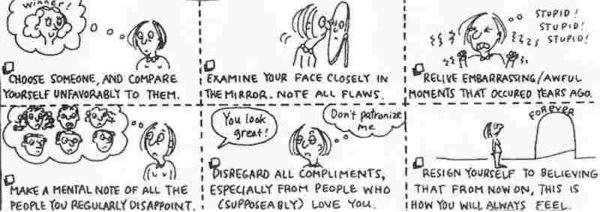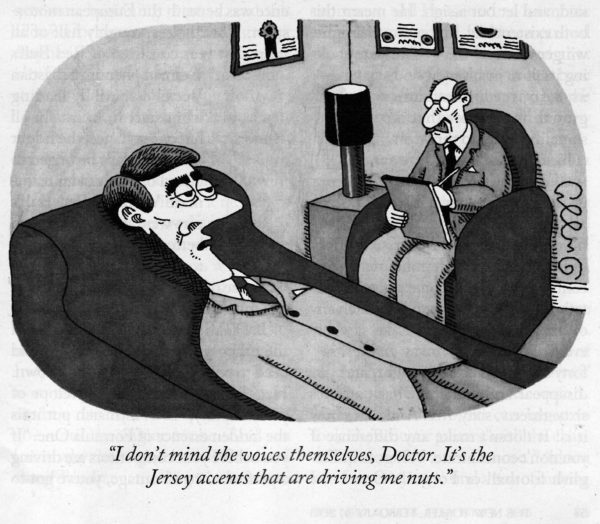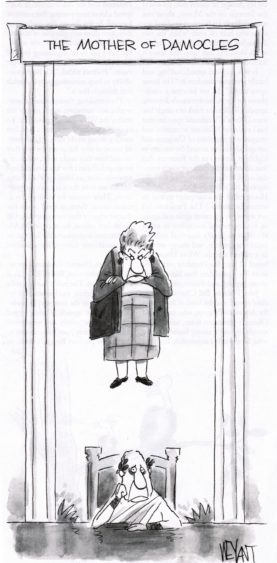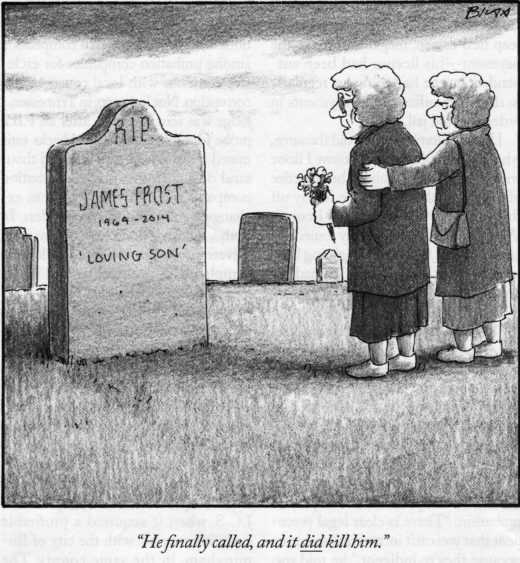Hello beautiful reader,
It’s been a while since we have been in touch. My bride and I have been traveling. Sooo happy to be back with you!!
I’ve been listening to, and thinking about the voices that play endlessly in my head. I’d bet the farm, that I’m not alone. I’m guessing that every one of us knows these intimately…THE “VOICES”. Does anyone not know the voices?
When we come upon people in the streets who are talking to themselves out loud, but not speaking into their cell phones, we assume, possibly correctly, that they suffer from some mental difficulties. We often do our best to ignore, avoid eye contact, even move away from them, don’t we? They make us uncomfortable, don’t they? Well, actually, THEY don’t make us uncomfortable…WE do that. But these folks who may be suffering greatly, and deserve our compassion – not our judgment – are not who I’m talking about right now.
I’m writing this about the rest of us. I wonder whether we are uncomfortable, at least partly, because we are reminded that we are not so very far apart from them. We too hear voices. We too have conversations without end going on in our heads.The main differences I reckon, are that we are able to witness them somewhat more objectively – and so, we are not “taken over” by them – and, that we have those conversations in silence. They stay locked up inside.
Our voices offer us non-stop advice, a running commentary on absolutely everything, generous helpings of criticism, and endless reminders of people and things that we need to not like, to fear, or to worry about.
On this, I love the metaphor offered to us by Bay Area writer Annie Lamott, of whom I am a big fan. I quote Annie:
“I need to bring up the Radio Station KFKD – or K-FUCKED here. If you are not careful, K-FUCKED will play in your head 24 hours a day, nonstop, in stereo.
“Out of the RIGHT speaker in your inner ear, will come the endless stream of self- aggrandizement, the recitation of one’s specialness, of how much more open and gifted and brilliant and knowing and misunderstood and humble one is.
“Out of the LEFT speaker will be the rap songs of self loathing, the lists of all the things one doesn’t do well, of all the mistakes you’ve made today, and over an entire lifetime; the doubt, the assertion that everything one touches turns to shit, that one doesn’t do relationships well, that one is a fraud in every way, incapable of selfless love, that one has no talent, or insight, and on and on…”
Cherie Huber, Zen Buddhist teacher and author, in her wonderful little book “There Is Nothing Wrong With You“, puts it differently, but just as well: ” We seem to believe that just because these continually critical voices – speak to us from inside our heads instead of outside – that they are OUR VOICES– and, that the speaker:
“-is our friend.
–cares for us.
–knows more than us.
-is saying something important, to our benefit, and most of all…
–is right.”
Do you recognize any of these from this excellent cartoon by Hilary Price?
“I messed up…again; why did I do that? Better not take that chance…too risky; not good enough, not smart enough, not strong enough, old enough, young enough…whatever enough. Or…not ready yet.” If we had an actual person talking to us this way for this long, we’d have ended the relationship years ago – right? So what are we waiting for? The therapists refer to these “voices” as our “inner critic”, but one of my teachers has a way better name for them:
“THE ITTY BITTY SHITTY COMMITTEE”.
David Geffen, the famous Hollywood music, theatre and film mogul tells of asking his psychiatrist during his years of therapy: “how do I get rid of these voices in my head?” to which his shrink’s response was: “YOU NEVER WILL. Your job is to learn not to listen to them.”
But, a brave lady named Sally Adee found a different solution – meet Sally:
Yikes!! Looks scary, huh? But Sally loved it!! Not long ago, she wrote a piece about her experience for New Scientist Magazine. I’ve excerpted a few of her words to share with you on this topic. I quote her:
“Have you ever wanted to take a vacation from your own head? What if you could take a very specific vacation – only from the stuff that makes it painful to be you: the sneering inner monologue that insists you’re not capable enough or smart enough or pretty enough, or whatever hideous narrative rides you?
“Now that, would be a vacation. You’d still be you, but you’d be able to navigate the world without the emotional baggage that now drags on your every decision. Can you imagine what that would feel like? Late last year, in the course of investigating a story for New Scientist, about using “neurofeedback” and electrical brain stimulation to accelerate learning, I found out that electricity might be the most powerful drug I’ve ever used in my life. I am going to tell you how it felt.
“It was a near spiritual experience…for the first time in my life, everything in my head finally shut up…I felt clear-headed and like myself, just sharper – calmer – without fear and without doubt. I just spent the time waiting for a problem to appear so that I could solve it. I can’t tell you how stunning it was to suddenly understand just how much of a drag that inner cacophony is on my ability to navigate life and basic tasks.
“My brain without self-doubt was a revelation. There was suddenly this incredible silence in my head. With the electrodes on, my constant self-criticism virtually disappeared – with no unpleasant side effects afterwards. The thing I wanted most acutely for the weeks following my experience was to go back and strap on those electrodes.
“I also started to have a lot of questions: Who was I, apart from the angry bitter gnomes that populate my mind and drive me to failure because I’m too scared to try? And where did those voices come from? Some of them are personal history, like the caustically dismissive 7th grade science teacher who advised me to become a waitress. Some of them are societal, like the hateful “lady mag” voices that bully me every time I look in a mirror. An invisible narrative informs all my waking decisions in ways I can’t even keep track of.
“And then, finally, THE MAIN QUESTION: What role do doubt and fear play in our lives, if their eradication actually causes so many improvements? Do we make more ethical decisions when we listen to our inner voices of self-doubt? Or, when we’re freed from them? And, if we ALL wore these caps, would the world be a better place?”
I think it is very significant that Sally ended her piece about our inner critic on this note – and, with these very questions. These last two questions particularly are very powerful. How much self doubt do we need? How much is too much?
Cheri Huber reminds us: “If a voice ever talks to you with anything other than love and respect, it is not your friend. Don’t listen to, or heed the advice.”
In my own life, the inner critic has been a big problem since my earliest years. So big in fact that when, during my year-long training as a life coach, we were obliged to choose a topic about ourselves to work on, I chose my old companion, my inner critic. So how did that work out?
Well, after an entire year of trying to be meticulously mindful of when my inner critic was criticizing me – and mindfulness is KEY here, I was able to move from not even noticing that I was calling myself an idiot for “dropping the milk” (or whatever) , to actually paying attention when I’m trashing myself. So now instead, I can move to this: “Michael, you wouldn’t talk to ANYONE that way. Why do you talk to YOURSELF that way??!!
So now, even if my old buddy the critic is still alive and kicking, at least I’ve got him on a leash. Keeping him there is the work of a lifetime.
And, as Sally Adee very, very importantly points out – in addition to her clear warning of the addictive potential of her experience – it’s crucial to remember too that the voices are not ALL wrong ALL the time. There are lots of times when our doubts serve us, maybe even save us. We need to be open to when those voices might actually be right. But when? And How?
On this, I have a suggestion for you that sometimes works for me: I try to visualize the voices as a group of actual people (like friends) sitting around a table with me, having coffee or a beer. They are giving me advice, telling me that I have messed up, or warning me that I will definitely mess up – if I do, or don’t do, this or that. Or instead, that I rock, or am a genius, or whatever– but it’s always something either “good” or “bad”. In that circumstance, I try to visualize myself agreeing with some, and disagreeing with others – just as I would in a group of actual people in my real life.
But now, while we are on this topic of our voices not being ALL WRONG…ALL THE TIME, (and sometimes, maybe even often, actually trying to serve us), lets reconnect with a young woman by means of this song, which I believe many of you will remember: Her voices are asking some tough, but necessary questions: “Will you marry for the money? Take a lover in the afternoon? Feel your innocence slipping away? Don’t believe it’s comin’ back soon? Are the voices in your head calling…GLORIA?
Remember the movie Flashdance? Remember Gloria? Let’s Listen to the voice of Laura Branigan, (and BTW, if you are reading this in your email and the music won’t play there, click on the title above, which will take you to this same post on my site, and it will play from there).
I often imagine that there’s a pair of conjoined twins, “joined at the head” – more accurately actually, in our heads. I call them the GOOD/BAD game twins. That “committee” that I mentioned above, relentlessly imposes the GOOD/BAD TWINS onto us. The twins are responsible for our very unhelpful habit of labeling ourselves as follows: “Oh, I didn’t send Christmas cards this year. I forgot our anniversary. My mom keeps asking why I don’t call her more often. I’M SOO BAD!”
Well, maybe it’s true that we sometimes demonstrate behavior which is impatient, forgetful, or negligent, but that doesn’t make us “bad”, simply, on occasion, impatient, forgetful, or negligent. “BAD”…is extra! You didn’t call your mother? You’re not “bad”. You just didn’t call your mother.
And, BTW, on this topic of calling our mom’s, has anyone ever heard any words something like these from their mom? “You know dear, it wouldn’t kill you to call your mother more often.” Well…you know what? Don’t beat yourself up too badly. You’re not alone.
And finally, it’s also be true that we are often, patient, generous, or diligent, but these don’t make us “good”, only patient, generous or diligent. “GOOD”…is extra! Says Cheri Huber: “since childhood, we have labeled behaviors like these as “good”and have kept doing them in order to continue to be good.
We have forgotten that we are already good!!
Practice tip:
I’ve got a suggestion that you might like to try: Take a few minutes and jot down some of the most frequent negative self-judgments placed upon you by “the Voices“. Scrutinize these logically, rationally, and without emotion. Do all these really, REALLY seem accurate? Do any?
That’s it for now dear reader. I pray that something in here might serve you in some way.
Until we connect again, please…
Take care of, and be kind to – yourself
Metta,
Michael




